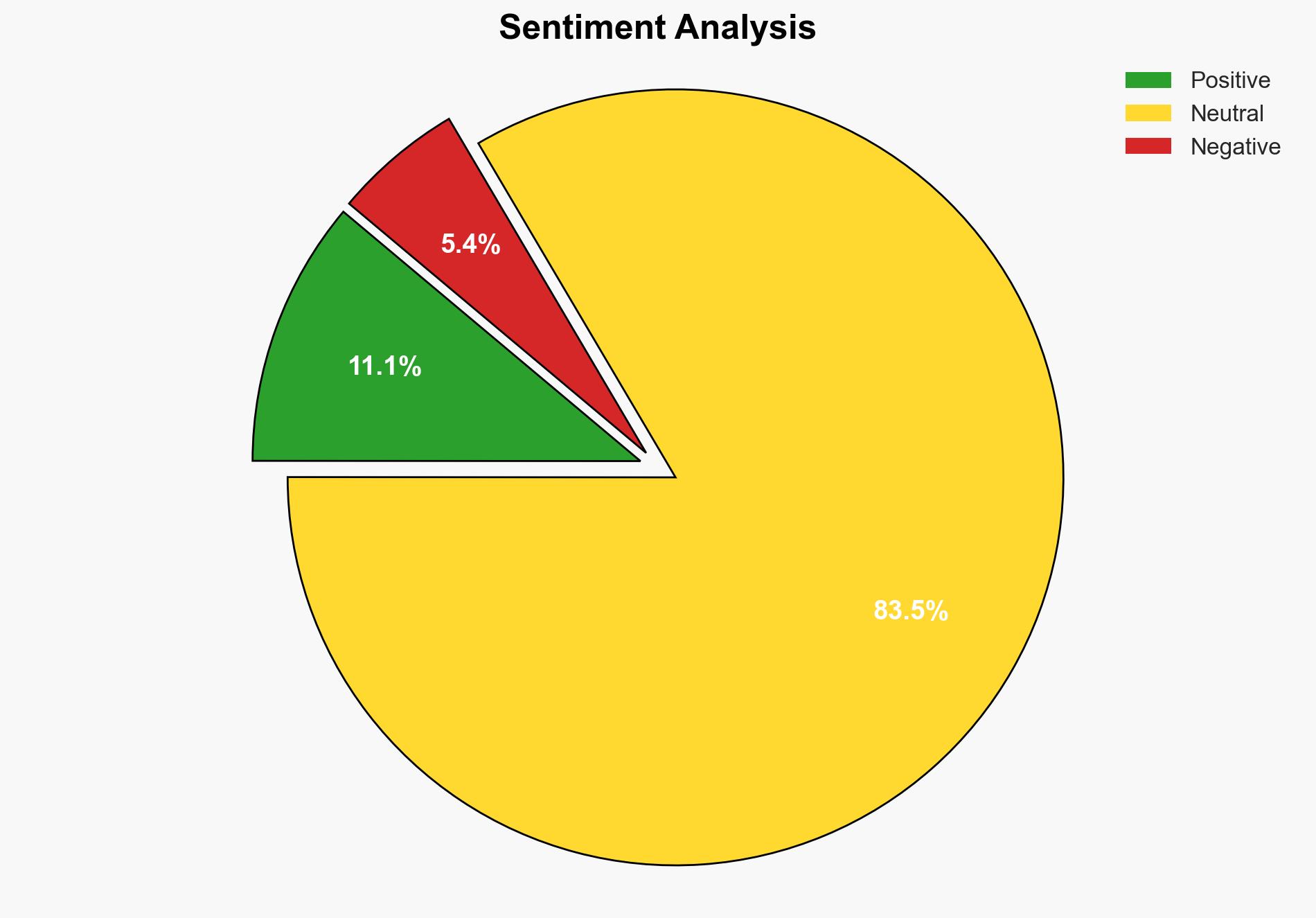Taliban urge Pakistan Iran to slow return of Afghan nationals – Globalsecurity.org
Published on: 2025-03-07
Intelligence Report: Taliban urge Pakistan Iran to slow return of Afghan nationals – Globalsecurity.org
1. BLUF (Bottom Line Up Front)
The Taliban have requested Pakistan and Iran to decelerate the repatriation of Afghan nationals, citing the need for an organized process amidst economic challenges. The situation involves millions of Afghan refugees and undocumented migrants, with both countries initiating plans for their return. This request highlights the complex interplay of regional security, economic stability, and humanitarian concerns.
2. Detailed Analysis
The following structured analytic techniques have been applied for this analysis:
SWOT Analysis
- Strengths: Regional cooperation potential, established diplomatic channels.
- Weaknesses: Economic instability in Afghanistan, strained resources in host countries.
- Opportunities: Potential for international aid and support, improved regional security through collaboration.
- Threats: Escalating humanitarian crisis, potential for increased regional tensions.
Cross-Impact Matrix
The repatriation of Afghan nationals from Pakistan and Iran could lead to increased economic strain on Afghanistan, potentially destabilizing the region further. Conversely, a well-managed repatriation process could alleviate pressures on host countries and improve regional relations.
Scenario Generation
- Best-Case Scenario: Coordinated international support facilitates a smooth repatriation process, enhancing regional stability.
- Worst-Case Scenario: Forced deportations lead to humanitarian crises, exacerbating tensions and instability.
- Most Likely Scenario: Gradual repatriation with intermittent challenges, requiring ongoing diplomatic engagement.
3. Implications and Strategic Risks
The forced or rapid return of Afghan nationals poses risks to national security and regional stability. Economic pressures on Afghanistan could lead to increased migration, while strained resources in host countries may fuel domestic unrest. The situation requires careful management to prevent escalation into broader regional conflicts.
4. Recommendations and Outlook
Recommendations:
- Encourage diplomatic dialogues between Afghanistan, Pakistan, and Iran to develop a phased repatriation plan.
- Seek international support to bolster Afghanistan’s economic capacity to absorb returning nationals.
- Implement monitoring mechanisms to ensure the protection of refugee rights during repatriation.
Outlook:
The most likely outcome involves a gradual repatriation process with international oversight, aiming to balance humanitarian needs with regional security concerns. Continuous diplomatic efforts and international aid will be crucial in mitigating risks and ensuring a stable transition.
5. Key Individuals and Entities
The report mentions significant individuals such as Mawlawi Abdul Kabir, Ubaid Ur Rehman Nizamani, and Alireza Bekdali. These individuals are central to the ongoing diplomatic discussions and efforts surrounding the repatriation process.




